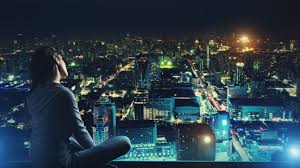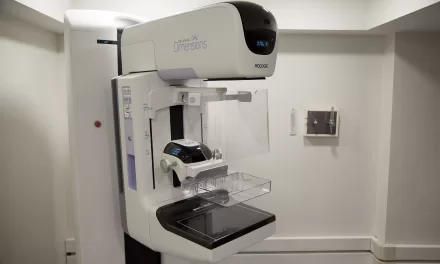A new study published in the journal Stroke suggests that prolonged exposure to bright artificial light at night may elevate the risk of developing conditions affecting blood flow to the brain and increase the likelihood of having a stroke. Conducted by researchers from the American Heart Association and the National University of Singapore, the study sheds light on the potential health hazards associated with light pollution, particularly in urban environments.
The study, led by Jian-Bing Wang, Ph.D., from the National Clinical Research Center for Children’s Health in China, examined the impact of residential outdoor nighttime light exposure on cerebrovascular health. Using satellite images to map light pollution, the researchers analyzed data from over 28,000 adults in China, tracking their exposure to artificial light and instances of stroke over a six-year period.
The findings revealed a significant correlation between nighttime light exposure and the incidence of cerebrovascular disease. Participants with the highest levels of exposure to outdoor light at night were found to have a 43% increased risk of developing cerebrovascular disease compared to those with the lowest exposure. Additionally, individuals exposed to higher levels of particulate matter (PM2.5 and PM10) and nitrogen oxide also showed elevated risks of cerebrovascular disease.
The study highlights the detrimental effects of continuous exposure to artificial light on brain health, suggesting that such exposure may disrupt sleep patterns and impair cardiovascular function over time. According to Wang, the suppression of melatonin production, a hormone essential for regulating sleep-wake cycles, may contribute to these adverse health outcomes.
While the study underscores the importance of addressing environmental factors such as light pollution and air quality, it also emphasizes the need for individuals, especially those in urban areas, to take proactive measures to reduce nighttime light exposure. Wang advises people to consider limiting exposure to artificial light at night to mitigate potential health risks.
However, the study does have its limitations, including the lack of data on indoor lighting and shading measures used by participants, as well as the focus on a specific population in China. Despite these limitations, the findings underscore the urgent need for further research and the development of effective policies to mitigate the impact of light pollution on public health.
As society grapples with the consequences of urbanization and technological advancements, addressing the health implications of excessive nighttime light exposure has become a pressing public health concern. By raising awareness and implementing preventive strategies, researchers aim to reduce the burden of cerebrovascular disease and stroke associated with light pollution, ultimately safeguarding the health and well-being of communities worldwide.












